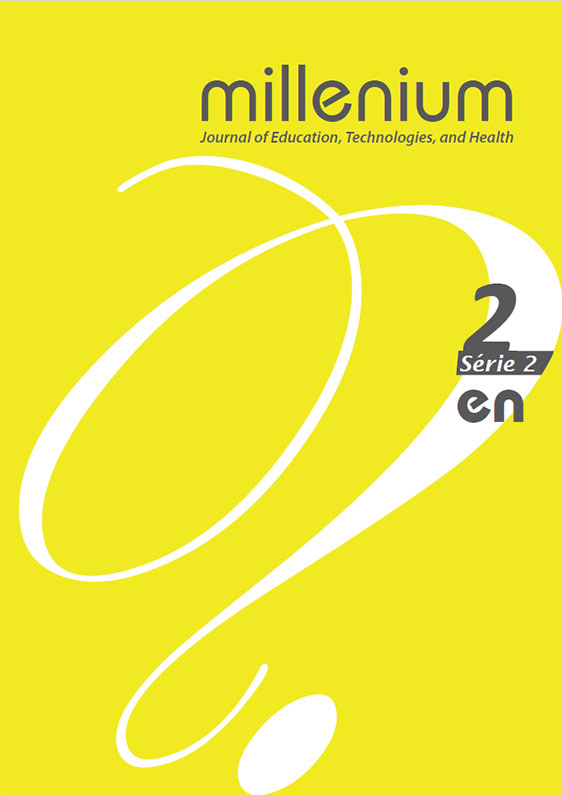The intervention of the physiotherapist in the patient with dementia in palliative care
DOI:
https://doi.org/10.29352/mill0202.04.00129Keywords:
Dementia, Alzheimer's, Physical therapy, Physiotherapist, Palliative careAbstract
Introduction: Currently there are a large number of people diagnosed with dementia. In the field of palliative care, rehabilitation interventions are often lessened. Thus, it is important to study non-pharmacological measures to improve the functional status and quality of life of these patients. Issue: What´s the intervention of the physiotherapist in the patient with dementia in palliative care?
Objectives: In this systematic review of the literature we intend to identify which interventions the physiotherapists used on patient with dementia in palliative care and the benefits of these techniques. Methods: Study design - Systematic Literature Review We've inclued 12 studies with a time interval 2003-2015, in which they are addressed techniques that can be used by physiotherapists in the treatment or relief of suffering and improving quality of life of patients. Scientific papers were found in several online databases and full text such as: Online Knowledge Library, B-On, Pubmed and PEdro.
Results: In this systematic review of the literature found several non-pharmacological techniques that contribute to improving the quality of life of patients with dementia. These techniques are exercise aerobic, maintenance of muscle strength, equilibrium training, touch, cognitive training, behavioral interventions, cognitive stimulation, transcutaneous electrical stimulation, exercise, music therapy, reminiscence , training activities of daily living, massage, recreation therapy, snoezelen room, multisensory stimulation, support and psychotherapy, and muscle relaxation.
Conclusions: Within the multidisciplinary programs analyzed in this review the physiotherapist makes perfect sense, being the professional that uses the greatest number of non-pharmacological techniques covered. These programs can be very beneficial for decreased cognition occurring more slowly and consequently allows the maintenance of the physical and increasing the patients quality of life and their caregivers. Exercise is the most studied technique with positive results on quality of life. We found that there is little evidence of physical therapist intervention in the terminal phase of the patient with dementia.
Downloads
References
Burge, E., Kuhne, N., Berchtold, A., Maupetit, C., & von Gunten, A. (2012). Impact of physical activity on activity of daily living in moderate to severe dementia: a critical review. Eur Rev Aging Phys Act , 27–39.
Henderson, V. W. (2014). Three Midlife Strategies to Prevent Cognitive Impairment Due to Alzheimer’s Disease. Climacteric. , 38–46.
Montagnini , M., Lodhi, M., & Born, W. (2003). The Utilization of Physical Therapy in a Palliative Care Unit. Journal of Palliative Medicine , 11-17.
Bossers, W., Scherder, E., Boersma, F., Hortoba, T., Woude, L., & Heuvelen, M. (2014). Feasibility of a combined aerobic and strength training program and its effects on cognitive and physical function in institutionalized dementia patients. A pilot study. Plos One , 1-10.
Burton, E., Cavalheri, V., Adams, R., Browne, C., Spencer, P., Fenton, A., et al. (2015). Effectiveness of exercise programs to reduce falls in old people with dementia living in the community: systematic review and meta-analysis. Clinical Interventions in Aging , 421-434.
Kumar, C. S., & Kuriakose, J. R. (2013). End-of-life care issues in advanced dementia. Mental Health in Family Medicine , 129–32.
Kumar, P., Tiwari, S., Goel, A., Sreenivas, V., Kumar, N., Tripathi, R., et al. (2014). Novel occupational therapy interventions may improve quality of life in older adults with dementia. International Archives of Medicine , 7-26.
McLaren, A., LaMantia, M., & Callahan, C. (2013). Systematic Review of Non-Pharmacologic Interventions to Delay Functional Decline in Community-Dwelling Patients with Dementia. Aging Ment Health , 655-666.
Nicholls, D., Chang, E., Johnson, A., & Edenborough, M. (2003). Touch, the essence of caring for people with endstage dementi a: A mental health perspective in Namaste Care. Aging & Mental Health , 571-578.
Olazarán, J., Reisberg, B., Clare, L., Cruz, I., Peña-Casanova, J., del Ser, T., et al. (2010). Nonpharmacological Therapies in Alzheimer’s Disease: A Systematic Review of Efficacy. Dement Geriatr Cogn Disord , 161-178.
Sampson, E. L., Thuné-Boyle, I., Kukkastenvehmas, R., Jones, L., Tookman, A., King, M., et al. (2008). Palliative care in advanced dementia; A mixed methods approach for the development of a complex intervention. BMC Palliative Care , 1-9.
Viola, L., Nunes, P., Yassuda, M., Apraham, I., Santos, G., Brum, P., et al. (2011). Effects of a multidisciplinar cognitive rehabilitation program for patients with mild Alzheimer’s disease. CLINICS , 1395-1400.
Winchestera, J., Dicka, M., Gillen, D., Reedd, B., Millerg, B., Tnklenbergi, J., et al. (2013). Walking stabilizes cognitive functioning in Alzheimer's disease (AD) across one year. Arch Gerontol Geriatr , 96-103.
Downloads
Published
How to Cite
Issue
Section
License
Authors who submit proposals for this journal agree to the following terms:
a) Articles are published under the Licença Creative Commons (CC BY 4.0), in full open-access, without any cost or fees of any kind to the author or the reader;
b) The authors retain copyright and grant the journal right of first publication, allowing the free sharing of work, provided it is correctly attributed the authorship and initial publication in this journal;
c) The authors are permitted to take on additional contracts separately for non-exclusive distribution of the version of the work published in this journal (eg, post it to an institutional repository or as a book), with an acknowledgment of its initial publication in this journal;
d) Authors are permitted and encouraged to publish and distribute their work online (eg, in institutional repositories or on their website) as it can lead to productive exchanges, as well as increase the impact and citation of published work
Documents required for submission
Article template (Editable format)





